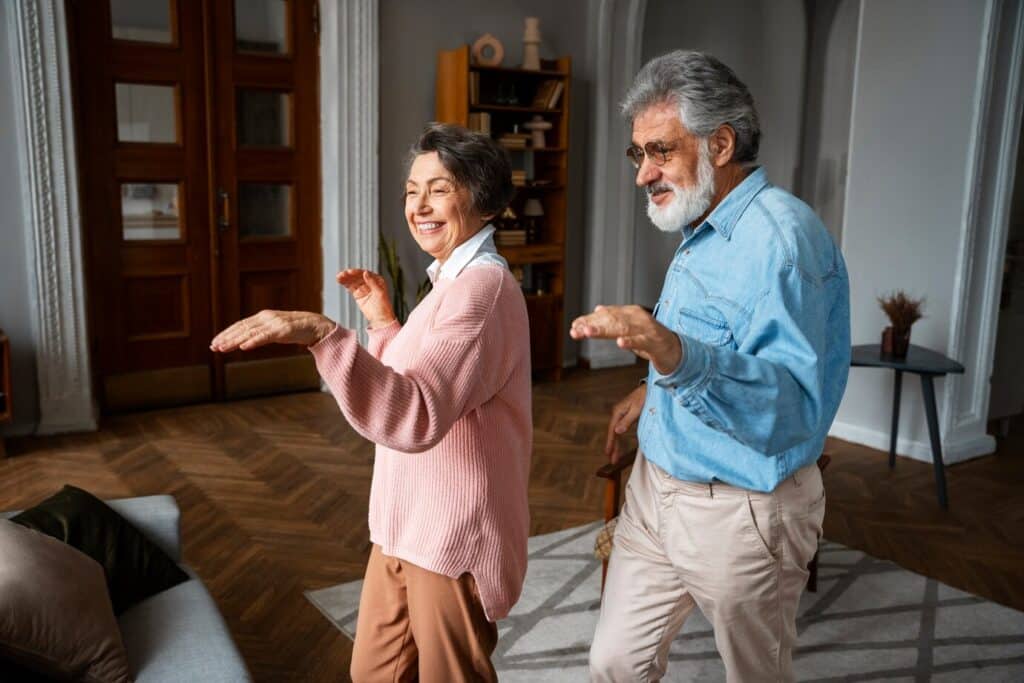Discover Engaging Hobbies for Seniors to Stay Sharp
Engaging in meaningful and stimulating activities is vital for seniors looking to maintain cognitive health and overall well-being. Whether you’re exploring a new pastime or reviving an old interest, the right hobbies can ignite creativity, enhance memory, and build lasting social connections. At Westmont Living, we emphasize the importance of enriching experiences that support lifelong learning and mental sharpness.
Hobbies for seniors are more than just time-fillers—they offer therapeutic benefits that enhance emotional, physical, and intellectual well-being. With a variety of options available, it’s easier than ever to incorporate fun and rewarding activities into your daily life. Let’s dive into some of the best hobby ideas for enhancing cognitive health and joy in your golden years.
Creative Hobbies to Spark the Mind
Painting and Crafting
Creative expression, like painting and crafting, offers immense benefits for mental stimulation. These hobbies for the elderly not only foster fine motor skills but also engage the brain in pattern recognition, decision-making, and emotional regulation.
- Try watercolor painting or acrylics for expressive fun.
- Knitting, crocheting, or scrapbooking stimulates focus and coordination.
- Crafting allows seniors to share handmade gifts and connect with loved ones.
Engaging in creativity has also been shown to reduce stress and anxiety, offering seniors a peaceful outlet for emotional well-being.
Woodworking and DIY Projects
Woodworking is an excellent retirement hobby for men, blending physical work with mental planning. These projects demand focus, spatial awareness, and problem-solving—key ingredients for healthy aging. From simple birdhouses to elaborate furniture, the possibilities are endless.

Intellectual Hobbies to Strengthen the Brain
Reading and Book Clubs
Reading is a simple yet powerful way to stimulate your brain. It enhances vocabulary, comprehension, and empathy. Reading with others creates shared experiences that deepen understanding.
- Join a book club to add a social component.
- Explore various genres to expand mental flexibility.
- Set reading goals to stay motivated.
Reading is also part of many proven mental stimulation activities, helping seniors remain engaged and mentally agile.
Journaling and Writing
Expressive writing and journaling are wonderful activities for older people that improve memory and emotional insight. By documenting personal experiences, seniors reflect on life, stimulating both logic and creativity.
Writing engages multiple brain regions, whether crafting stories or keeping a daily log. Consider creative writing classes or online forums to share your work.
Writing also supports cognitive stimulation and memory improvement, making it an ideal daily habit.
Language Learning
Learning a new language may seem daunting, but it’s one of the most rewarding activities for seniors. It improves memory, attention, and multitasking skills.
- Use language learning apps for flexible, on-the-go practice.
- Watch international films with subtitles.
- Practice with a language buddy or attend local language meetups.
Participating in shared learning activities like quail egg incubation can also encourage curiosity and social bonding.

Physical Hobbies for Cognitive Health
Gardening
Gardening blends physical movement with mental engagement. It’s especially effective as a hobby for seniors seeking peace, purpose, and a connection to nature.
Benefits include:
- Boosted circulation and coordination
- Stress relief and relaxation
- Planning and sequencing skills
- A tangible sense of achievement
Gardening is perfect for seniors who enjoy hands-on work and the beauty of nature.
Dancing
Dance is one of the best senior citizen activities to boost brain health. Learning dance steps promotes muscle memory, coordination, and rhythmic cognition. Plus, dancing is fun and social!
- Try ballroom, salsa, or line dancing.
- Join group classes to stay active and meet people.
- Use YouTube dance tutorials for home practice.
Outdoor Activities
Don’t underestimate the power of the great outdoors. Whether it’s a stroll in the park or hiking in nature, outdoor activities elevate mood, improve heart health, and enhance brain function.
Some enjoyable outdoor hobbies for the elderly include:
- Nature photography
- Birdwatching
- Walking clubs
- Gardening in communal spaces

Social Games and Group Fun
Social interaction is essential for cognitive well-being. Games requiring logic, memory, and communication help prevent mental decline.
- Bridge, chess, or card games for strategy and memory
- Word puzzles and trivia nights to test recall
- Board games like Scrabble for wordplay and interaction
These activities for old people promote brain health, laughter, and joy. Gather friends or family and enjoy some brain-boosting fun.
Giving Back Through Volunteering
Volunteering is a powerful way to engage the mind and uplift others. It fosters social interaction, purpose, and lifelong learning.
- Mentor local youth or participate in school reading programs
- Help at food banks or thrift shops
- Join community clean-up efforts
- Support causes like animal rescue or environmental conservation
These senior citizen activities make a real difference while boosting emotional resilience and cognitive flexibility.
Explore more volunteering benefits at Senior Corps or VolunteerMatch.

Integrating Hobbies
Bringing Hobbies into Everyday Life
Daily engagement in hobbies helps you stay consistent and reap long-term benefits. To keep things exciting, mix and match activities.
| Hobby Type | Key Benefits |
| Creative | Emotional expression, brain activation |
| Intellectual | Memory, focus, vocabulary |
| Physical | Coordination, stress relief |
| Social | Communication, mental stimulation |
Choose a few hobbies for seniors from each category and build a personalized routine that fits your schedule and interests.
Unlock a Joyful and Healthy Lifestyle Through Hobbies
Exploring new hobbies for seniors is more than just entertainment—it’s a pathway to a vibrant, fulfilling life. Whether diving into a creative project, learning a language, or giving back to your community, every activity helps nurture cognitive health, emotional balance, and social connection.
At Westmont Living, we believe in purposeful living through engaging experiences. Find the activities that bring you joy, challenge your mind, and strengthen your body—and make them a part of your daily life.
To discover how our communities support an active and engaging lifestyle, contact us or call us at 858-456-1233 today.
Discover the level of care you or your family member requires.What Level of Care Do You Need?
Frequently Asked Questions
What hobby should a 70-year-old have?
A 70-year-old can enjoy both mentally stimulating and physically appropriate hobbies, such as gardening, painting, knitting, or walking. These activities promote relaxation, creativity, and gentle movement. Social hobbies like book clubs or volunteering also offer connection and purpose. Ultimately, the best hobby is one that brings joy and suits their physical abilities.
What is the most popular hobby for retirees?
One of retirees’ most popular hobbies is gardening, combining light physical activity with a calming, rewarding experience. Other favorites include traveling, reading, golfing, and engaging in arts and crafts. Many retirees also enjoy learning new skills or joining community classes. The key is to choose hobbies that support mental and physical wellness.
What activities are good for seniors?
Seniors benefit from activities that encourage movement, mental engagement, and social interaction. Walking, tai chi, water aerobics, puzzles, and card games are great examples. These activities help maintain mobility, improve cognitive health, and reduce feelings of loneliness. Safety and enjoyment should always guide activity choices.
How do I keep my 70-year-old busy?
Keeping a 70-year-old engaged involves a mix of physical, mental, and social activities. Encourage daily routines that include hobbies, gentle exercise, social visits, or even part-time volunteering. Technology can also help with video calls, online classes, or games, keeping them mentally sharp and connected. Personal interests should guide the schedule to make it fulfilling.
What do seniors need the most?
Seniors need a balance of health support, social connection, and a sense of purpose. Regular medical care, nutritious meals, and safe living environments are foundational. Equally important are emotional well-being and feeling valued, achieved through family time, community engagement, and meaningful activities. Independence and dignity should always be respected.
What are the activity recommendations for older adults?
Experts recommend at least 150 minutes of moderate-intensity aerobic activity per week for older adults, along with strength exercises twice a week. Activities like brisk walking, yoga, stretching, and balance training are ideal. Mental stimulation through games or learning, and social engagement, are also highly encouraged. Activities should always be adapted to individual capabilities.








